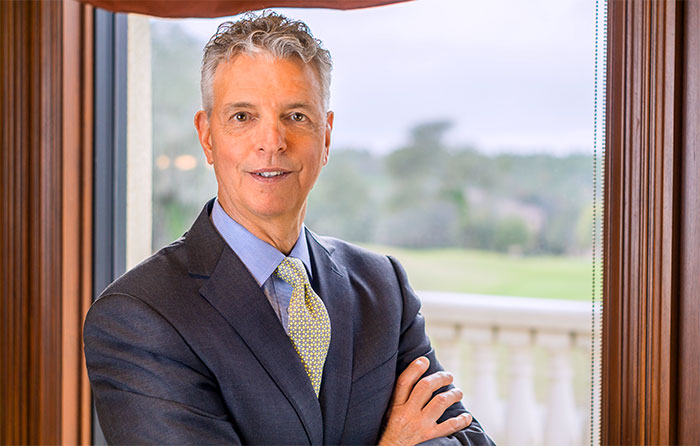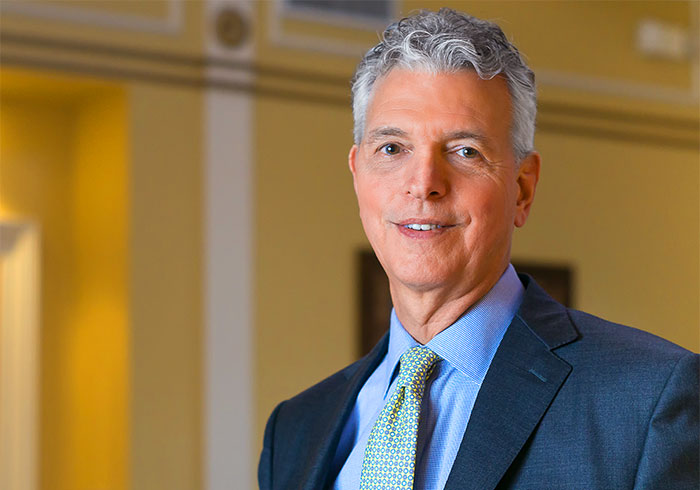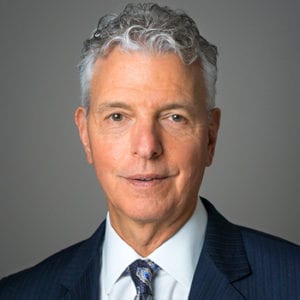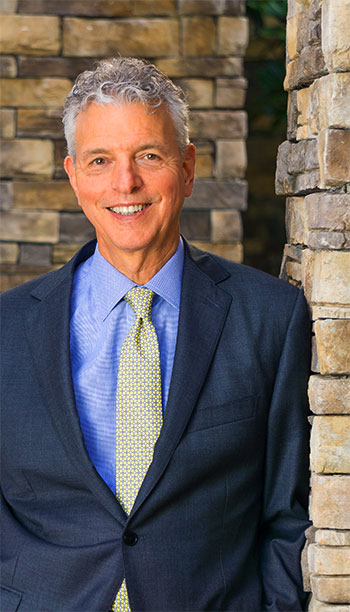Effective stewardship of clients’ evolving financial goals
Effective stewardship of clients’ evolving financial goals

Alex Malley • Inverness, FL
Illuminate Financial Group • Cetera Advisors LLC.
Read full biography below
Proactive Advisor Magazine: Alex, talk about how your advisory career took shape.
I entered the financial-services industry right after college, receiving an offer from a recruiter to join a life insurance firm in personal production. Over the next 15 years, I worked at a variety of financial-services companies, building my skills and knowledge base in several different areas of the business: life insurance, annuities, health and disability coverages, and investments. During this period, through a lot of hard work and good fortune, I moved on to managerial positions, the last being with a nonsectarian fraternal organization. My responsibility there was to travel throughout North America and the United Kingdom, helping to develop managers to hire and train new representatives.
In 1999, I decided that I really wanted to get back to working one-on-one with clients, so I opened my own practice in Florida. I love getting to know people and what makes them tick. Everyone has a unique story about their relationship with money: how they made it, how they have managed it in the past, and what they hope to achieve with it in the future. I think I bring a strong skill set to clients and am able to help them find solutions to increase the probabilities of financial success for the long term. Starting my own practice was one of the best decisions I ever made. In 2012, I became affiliated with Illuminate Financial Group and rebranded my practice. That was another decision that has worked out well, and the firm has been an excellent and supportive resource in many areas.

What was the market environment like when you went out on your own?
When I first relocated to Florida, the investment climate was vastly different than it is now. I had to start my practice mainly from scratch, and I used seminars extensively to introduce myself to new prospects. I covered basic financial education topics along the lines of “Eight mistakes seniors make with their money.”
“Defense is what helps our clients win in the long run. And that is a very important role that I see for active management.”
This approach allowed me to successfully build a network of contacts and have introductory conversations with people. The need for education was substantial, as was the need for disciplined retirement income planning. Right before the dot-com crisis, people were still in a “go-go” market mentality and seduced by the big returns of some individual stocks. We all know how that turned out. Investors were looking down their noses at returns in the high single-digits or low-teens, listening to stories from their neighbors about the next hot stock in the tech space.
I cannot say I was prescient in predicting a major market correction in the early 2000s. I can say that my client discussions reaffirmed to me that risk management is an important piece of investment planning that most investors tend to ignore. As an old sociology major, I was concerned with the dynamics of a crowd mentality that was raising a red flag at that point in the market cycle. Too good to be true is exactly that.
People tend to have a somewhat irrational attitude when it comes to a lot of things in our society, and certainly when it comes to their money. When things are good in the market and the economy, they think it will never end. And the same thing applies in the darkest times. That is one of the behavioral finance issues advisors face with clients and something we need to become skilled at dealing with. It is also one of the reasons today why I try to build client portfolios that help mitigate market volatility.
In retrospect, I wish I had had all of today’s sophisticated money-management techniques in place at the time of the dot-com crash. But active money management was just starting to take hold; for independent advisors working with everyday clients, this was largely an unknown. We mostly relied on the principles of modern portfolio management and diversification. I had my fair share of clients with allocations to fixed annuities in the late ’90s and early 2000s, and that helped somewhat. However, it was a period that really changed my thinking about how people should have their money managed.
Clients feeling immense emotional stress in the markets and experiencing large drawdowns is something I never want to live through again. Clients work extremely hard their entire lives to build a nest egg, and, as advisors, we need to make sure that asset protection is a key element of the investment planning that we provide.
The concept of active management for at least a portion of someone’s portfolio just makes good sense. Taking an analogy from football, a successful team needs both a strong defense and a good offense. But, as the saying goes, while offense wins ballgames, defense wins championships. I believe that applies to investment planning. I can put points on the board with offensive strategies and achieve competitive returns, but defense is what helps our clients win in the long run. And that is a very important role that I see for active management. The philosophy of active management, used properly and according to the specific needs of clients, has become a key component of my investment planning and my overall practice.
A very important concept when developing investment plans with clients is helping them to clearly understand the rationale for the various elements of the plan. Not all elements of a portfolio are going to be performing the same, nor should they. That reflects the concepts of having strategy and asset-class diversification in place, risk management, and good defensive planning. When I conduct client review sessions, we go over the performance of the various strategies—the important thing is that each strategy is performing the way it was intended to. I tell clients, “Remember why we put in this piece of the pie. It may have somewhat lower returns right now, but you will appreciate it when the nature of the market changes.”
We are many years into a bull market right now. I have no real idea when that will end, but we need client portfolios to be positioned in suitable fashion when it does. The next great downturn will happen, and it may not be for the same reasons as in the past—it never is. It may not be as steep, or it may be steeper and more prolonged. So, in order to offer a portfolio some protection, we carve out a role for actively managed strategies.
What advice would you give to a new advisor starting in the business today?
I often think back to my college days at Central Michigan University. I was a kid from New York and New Jersey, and this was a whole new world to me, with people from all over the U.S. and other countries. I applied myself academically, far more so than in high school. Ever since, I have been thirsty for knowledge and consider myself a lifelong learner.
My counsel to young people today: “Be a student of the game. Learn your business, learn how it operates, why it operates the way it does, and how you can do things potentially differently or better. But also be a student of people, and try to learn what makes each individual special and different.”

Our business, in the final analysis, is all about relationships. I have clients from all walks of life and all sorts of backgrounds, including Holocaust survivors and people who worked for the U.S. space program. Advisors need to understand their clients’ backgrounds, what money means to them, and what is important in their lives moving forward. Is it leaving a financial legacy to children and grandchildren, traveling abroad, acquiring a dream retirement home, volunteer work, donating to charity, or starting a second or third career?
Knowing your clients well facilitates what we call “effective stewardship.” While we do not make decisions for our clients, what we recommend and lay out as options carries a lot of weight. It is a responsibility we take very seriously. We always want to apply the principles of transferring our knowledge, operating with integrity, and providing outstanding and dedicated service.
This all relates to the advice I would give to any new advisor coming into our firm or just starting out in the business. Be inquisitive and relentless in knowing your world and the world around you. Focus on the client. Build a deep relationship. And then apply all of your skills and the resources of your firm in helping clients and their families achieve the goals that are most important to them.
 Alex Malley is a financial advisor with Illuminate Financial Group, located in Inverness, Florida. Mr. Malley is also a registered representative offering securities and advisory services through Cetera Advisors LLC.
Alex Malley is a financial advisor with Illuminate Financial Group, located in Inverness, Florida. Mr. Malley is also a registered representative offering securities and advisory services through Cetera Advisors LLC.
After growing up in New York City and New Jersey, Mr. Malley moved to Michigan to attend Central Michigan University, where he earned a bachelor’s degree. He began what he characterizes as a “very fulfilling career of helping people pursue their financial goals” in 1975. Mr. Malley worked for several different firms in the financial industry, acquiring expertise in life insurance, disability, annuities, and investments. As he later moved into a managerial role, his responsibilities broadened into staff recruitment, development, and training.
In 1999, Mr. Malley established his current practice in Florida, rebranding his office as part of the Illuminate Financial Group in 2012. He says his practice is based on “a belief in establishing strong personal relationships, applying sound financial principles, and offering personalized service focused on the changing financial goals of clients.”
Mr. Malley is an avid sports fan, closely following major league baseball and college basketball and football. He and his wife love to cook, travel, and spend time with friends and family. He says, “Gathering a large group together for good food, conversation, and watching a ballgame is one of our favorite things to do.”
Disclosure: Securities and advisory services offered through registered representatives of Cetera Advisors LLC (doing insurance business in CA as CFGA Insurance Agency), member FINRA, SIPC. Cetera is under separate ownership from Illuminate Financial Group.
Photography by Charles LeRette


